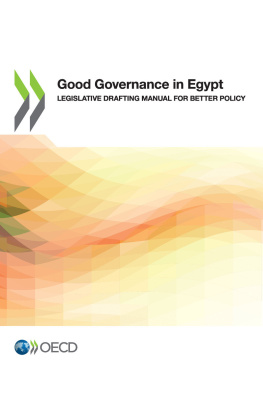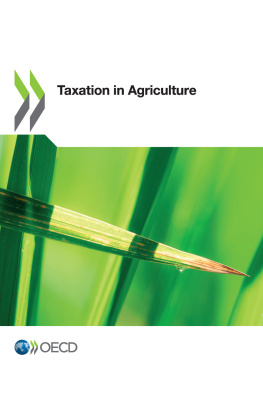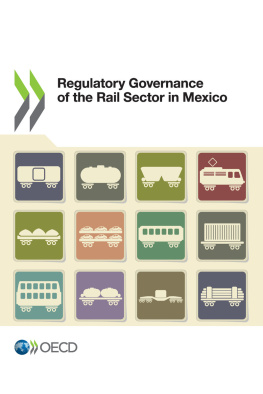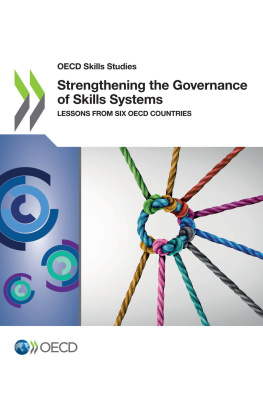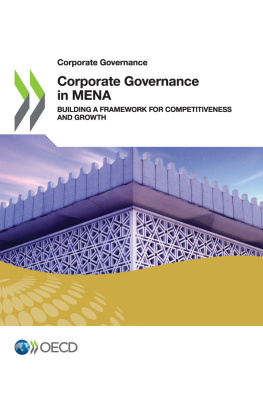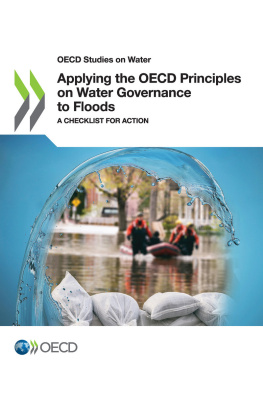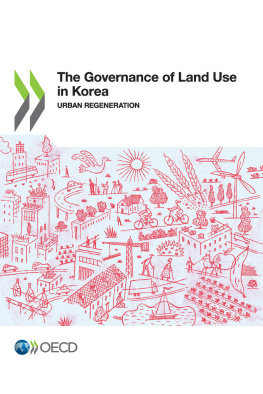OECD - Good Governance in Egypt
Here you can read online OECD - Good Governance in Egypt full text of the book (entire story) in english for free. Download pdf and epub, get meaning, cover and reviews about this ebook. year: 2019, publisher: OECD Publishing, genre: Politics. Description of the work, (preface) as well as reviews are available. Best literature library LitArk.com created for fans of good reading and offers a wide selection of genres:
Romance novel
Science fiction
Adventure
Detective
Science
History
Home and family
Prose
Art
Politics
Computer
Non-fiction
Religion
Business
Children
Humor
Choose a favorite category and find really read worthwhile books. Enjoy immersion in the world of imagination, feel the emotions of the characters or learn something new for yourself, make an fascinating discovery.
Good Governance in Egypt: summary, description and annotation
We offer to read an annotation, description, summary or preface (depends on what the author of the book "Good Governance in Egypt" wrote himself). If you haven't found the necessary information about the book — write in the comments, we will try to find it.
OECD: author's other books
Who wrote Good Governance in Egypt? Find out the surname, the name of the author of the book and a list of all author's works by series.
Good Governance in Egypt — read online for free the complete book (whole text) full work
Below is the text of the book, divided by pages. System saving the place of the last page read, allows you to conveniently read the book "Good Governance in Egypt" online for free, without having to search again every time where you left off. Put a bookmark, and you can go to the page where you finished reading at any time.
Font size:
Interval:
Bookmark:
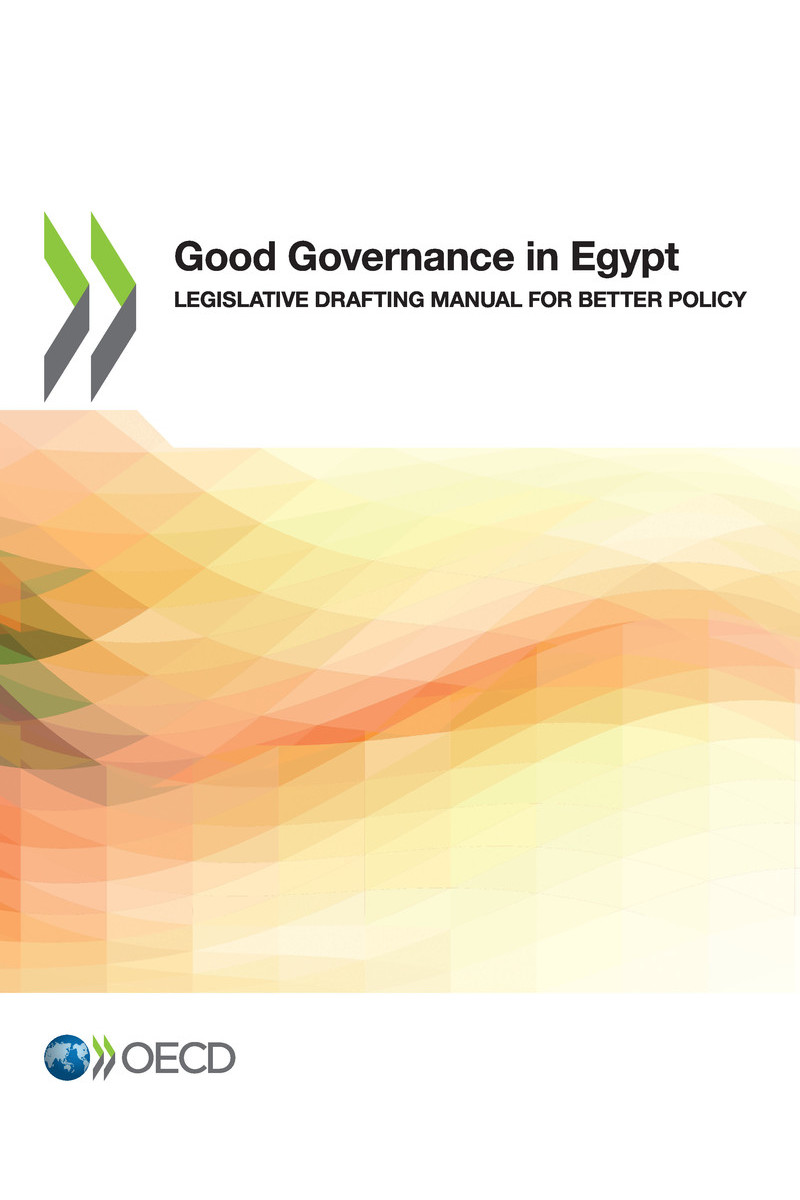
OECD (2019), Good Governance in Egypt: Legislative Drafting Manual for Better Policy , OECD Publishing, Paris, https://doi.org/10.1787/g2g9dd64-en .
Laws and regulations have an impact on all aspects of everyday life. While good regulation contributes to well-functioning markets and societies, poor regulation may undermine them by imposing undue costs on businesses and citizens.
In the MENA region, good regulation is increasingly recognised as a precondition for strengthening the rule of law and building more resilient societies. The Arab Republic of Egypt has placed an emphasis on pursuing regulatory reform and prepared the first Egyptian legislative drafting guide to promote uniform quality in rulemaking.
This report sheds light on the role of legislative drafting guides in enhancing regulatory quality and good governance, and provides evidence from OECD and MENA countries on the preparation and implementation of the legislative drafting guides. In particular, the report assesses Egypts legislative drafting guide in light of the 2016 OECD-MENA Regional Charter for Regulatory Quality, the 2012 OECD Recommendation of the Council on Regulatory Policy and Governance and international good practices. It then makes specific policy recommendations to guide the implementation of the Egyptian Legislative Drafting Manual.
This report builds on the OECDs expertise and policy knowledge acquired through dialogue among peer-countries in its Public Governance and Regulatory Policy Committees, its networks in the MENA-OECD Governance Programme, as well as the OECD instruments that codify good practices and standards in regulatory policy and public governance. In particular, the 2012 OECD Recommendation of the Council on Regulatory Policy and Governance sets out the principles of good regulatory governance and calls for open, transparent and inclusive processes in rulemaking to ensure that regulations serve the public interest.
The report is part of the MENA Transition Fund Project The Rule of Law in Egypt under the G7 Deauville Partnership, implemented in partnership with the Ministry of Justice of Egypt, the OECD and the African Development Bank. It is based on the findings of peer-to-peer exchanges, capacity-building activities, technical workshops and a series of study visits to OECD countries, including Canada, France, Italy, the Netherlands and Spain, which have been conducted since 2014. It is addressed to Egyptian officials in charge of legal drafting and regulatory policy. The OECD would like to thank the government officials and OECD peers for their commitment to the partnership, as well as the MENA Transition Fund of the G7 Deauville Partnership for their financial support.
This report is published by the OECD Public Governance Directorate under the guidance of Marcos Bonturi, Director of Public Governance and the strategic direction of Martin Forst, Head of Governance Reviews and Partnerships Division.
Under the direct supervision of Miriam Allam, Head of the MENA-OECD Governance Programme, this report was authored by Gamze Igrioglu from the OECD Secretariat. The Report benefited from valuable comments from Nikolai Malyshev, Head of Regulatory Policy Division.
Particular thanks are expressed to Justice Hanni Hanna, Judge Magued Sobhi, Edward Donelan, Jean-Jacques Hible, Carina Sugden and William Robinson for their comments. Many thanks are also expressed to Filippo Cavassini, Eric Combes, Sherif Fawzi, Jean-Christophe Geiser, Sbastien Jeannard, Maggie Kamel, Mohamed Refai, Wolfgang Rusch, Wim Voermans and Helen Xanthaki for their contributions. Daisy Knox-Murphy provided logistical support, and Andrea Uhrhammer, Ciara Muller, Amelia Godber and Roxana Glavanov provided editing and publishing support.
The OECD would like to thank the government of the Arab Republic of Egypt, especially the Ministry of Justice and the Ministry of Investment and International Cooperation, for their active engagement, coordination and assistance in completing this report. The OECD would like to express particular thanks to H.E. Justice Mohamed Hosam Ahmed Ali Abdel-Reheem, Minister of Justice and H.E. Dr. Sahar Nasr, Minister of Investment and International Cooperation for their commitment to the partnership. The OECD would like to thank the African Development Bank for their cooperation.
The report is a contribution of the MENA-OECD Governance Programme within the scope of Strengthening the Rule of Law: Effective and transparent delivery of justice and rule-making in Egypt project, supported financially by the MENA Transition Fund Project of the G7 Deauville Partnership.
The 2012 OECD Recommendation of the Council on Regulatory Policy and Governance demonstrates that good regulatory management helps stimulate economic activity at both domestic and international levels. A well-functioning regulatory framework enables efficient markets and helps protect citizens against financial, economic and societal uncertainties. Law drafting techniques and procedures have a direct impact on the effectiveness of legislation and regulatory quality. Transparent and coherent legislative drafting procedures help promote public participation in the rule-making process, foster trust in the justice system, reinforce the rule of law and create an enabling business environment where citizens and businesses can identify their rights and obligations.
This report provides an understanding of how legislative drafting guides enhance legislative and regulatory quality. It provides evidence from the OECD and MENA countries on the preparation and implementation of legislative drafting guides and assesses the Egyptian Legislative Drafting Manual vis--vis OECD recommendations and international good practices. The report concludes with tailored policy recommendations for implementing the Egyptian Legislative Drafting Manual. In particular, it highlights the following key areas where further efforts could maximise the potential of the Egyptian Legislative Drafting Manual as a tool for obtaining better outcomes from legislation:
Font size:
Interval:
Bookmark:
Similar books «Good Governance in Egypt»
Look at similar books to Good Governance in Egypt. We have selected literature similar in name and meaning in the hope of providing readers with more options to find new, interesting, not yet read works.
Discussion, reviews of the book Good Governance in Egypt and just readers' own opinions. Leave your comments, write what you think about the work, its meaning or the main characters. Specify what exactly you liked and what you didn't like, and why you think so.

